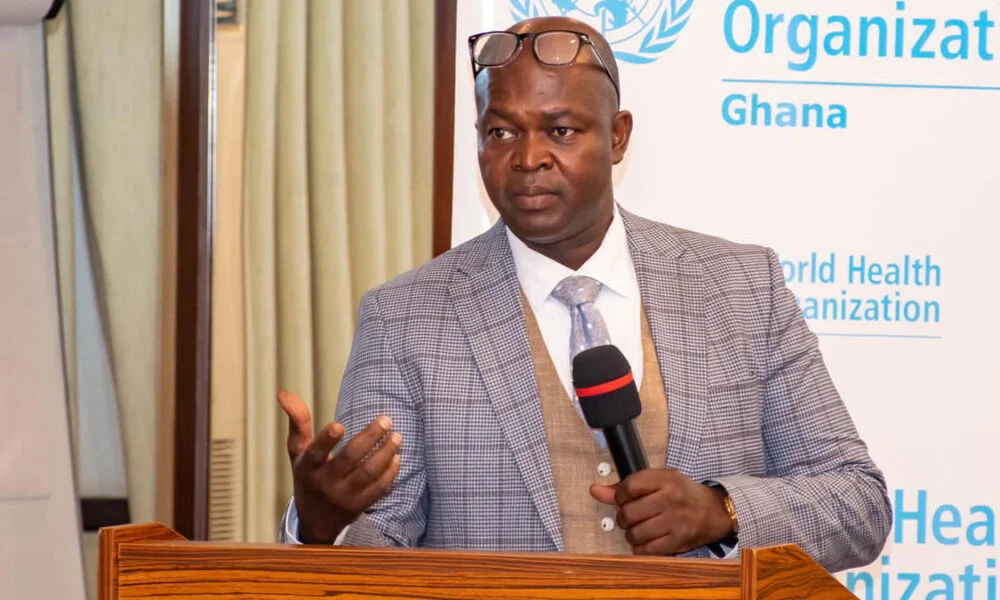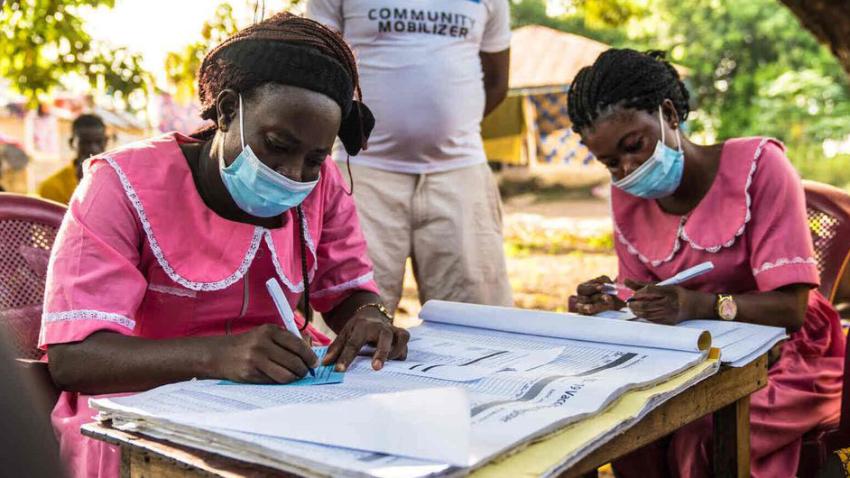The Ghana Health Service (GHS) has confirmed a localised outbreak of COVID-19 at the University of Ghana, Legon, prompting renewed calls for public vigilance and adherence to preventive health measures.
In a press release signed by the Acting Director-General of the GHS, Professor Samuel Kaba Akoriyea, the Service disclosed that while cases across the country have seen a significant decline over the past year, recent weeks have witnessed a concerning uptick in infections, though currently confined to the University campus.
“The World Health Organisation (WHO) no longer classifies COVID-19 as a Public Health Emergency of International Concern. However, the pandemic is not over. Sporadic outbreaks, which may follow seasonal patterns, are expected to occur globally.”
Acting Director-General of the GHS, Professor Samuel Kaba Akoriyea
According to the statement, although the broader national picture remains positive, with case numbers steadily declining over the past year, the recent developments at the University of Ghana signal that the virus is far from eradicated.
The statement noted that the Ghana Health Service, in collaboration with the Noguchi Memorial Institute for Medical Research (NMIMR), continues to monitor the virus as part of the national influenza and COVID-19 surveillance program across all 16 regions of the country.
This monitoring program has been instrumental in detecting the recent rise in cases within the University of Ghana community. Professor Akoriyea assured the public that the current cases are mild, and no hospital admissions have been recorded so far.

However, he noted that the GHS is taking no chances as it is working closely with the University’s authorities to contain the outbreak and adapt response strategies as the situation evolves. These include contact tracing, testing, and public education campaigns targeted at students, faculty, and staff.
Adherence to COVID-19 Protocols
In its official communication, the Ghana Health Service reiterated the need for continued adherence to proven COVID-19 prevention protocols.
These include maintaining social distancing, wearing face masks—particularly in enclosed or poorly ventilated areas—frequent hand washing with soap under running water, the use of hand sanitizers, and avoiding large gatherings.
Importantly, the public is advised to self-isolate and seek immediate medical attention if they experience symptoms such as fever or chills, cough, sore throat, general bodily weakness, difficulty in breathing, or loss of taste or smell.
While the current outbreak is described as localised, the Ghana Health Service emphasized that complacency could undermine the significant progress made so far.

The Service noted that the threat of COVID-19 still looms, particularly in institutional settings where people live, work, or interact in close quarters.
Universities, with their large and dynamic populations, remain vulnerable to rapid disease transmission if precautionary measures are not observed consistently.
The Ministry of Health, through the Ghana Health Service, assured both the University community and the general public that all necessary interventions are being implemented to contain the outbreak and minimize its spread.
According to Professor Akoriyea, health officials are not only managing the situation at the University but are also closely watching for potential spillover into neighbouring communities and other tertiary institutions.
The GHS’s timely communication seeks to calm fears while encouraging heightened responsibility among Ghanaians. It also underscores the importance of institutional cooperation in the fight against COVID-19.
Authorities at the University of Ghana are reportedly playing an active role in implementing containment strategies and reinforcing public health guidelines among students and staff.
READ ALSO: Energy Minister Pledges Reforms on Laycan and Downstream Efficiency


















